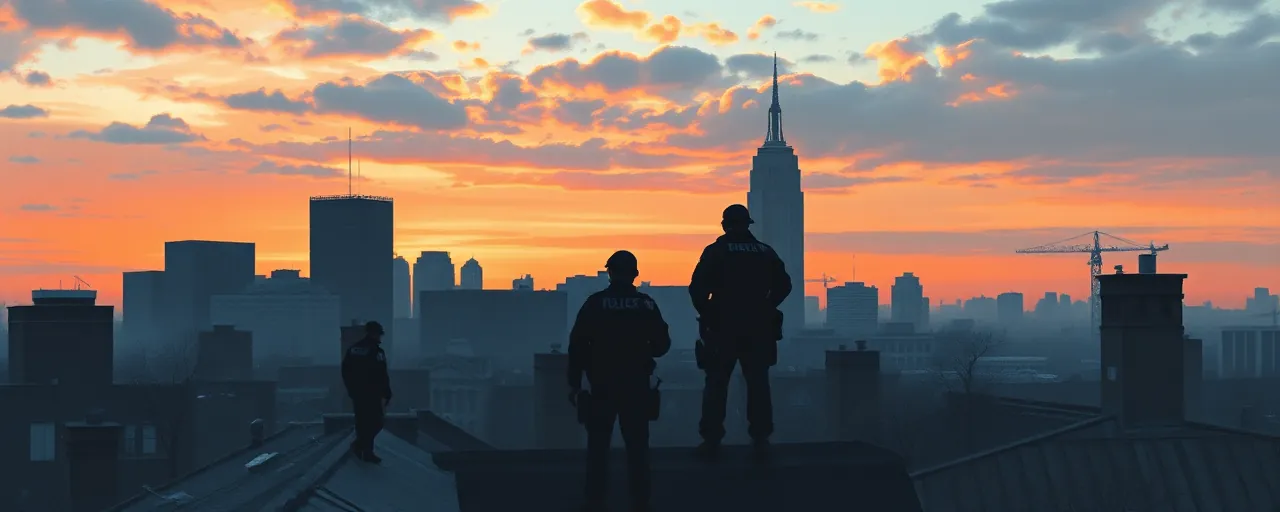A City Under Siege
Boston's streets have bled for too long. Gangs like H-Block, with their stranglehold on neighborhoods, peddle poison and fear, tearing at the fabric of communities. Yesterday’s guilty plea from Dennis Wilson, a hardened member of this notorious crew, marks a turning point. Known as 'Deuce,' Wilson admitted to fueling a drug conspiracy that flooded Roxbury with fentanyl, cocaine, and crack. This isn’t just a courtroom win; it’s a signal that law enforcement refuses to let thugs dictate the future of our cities.
For years, H-Block has cast a shadow over Boston. Born in the 1980s as the Humboldt Raiders, it morphed into a city-wide menace by the 2000s, infamous for shootings and brazen defiance of authority. In 2015, one of their own shot a Boston cop point-blank, a chilling reminder of their contempt for order. Wilson’s plea, tied to a multi-year probe that netted over 500 grams of deadly drugs, proves the system can hit back hard when it commits to action.
The Fentanyl Scourge Demands Resolve
Fentanyl isn’t just a drug; it’s a death sentence. Smuggled from Mexico with chemicals from China, it’s killing Americans at a staggering rate, with over two-thirds of overdose deaths tied to synthetic opioids. Boston’s urban neighborhoods, already battered by poverty, bear the brunt. H-Block’s role in pushing this poison shows how gangs exploit desperation for profit. The 2023 seizure of 12,000 kilograms at the border barely dented the flow, but cases like Wilson’s show local victories matter. Every dealer off the street saves lives.
Some argue for softer approaches, claiming harsh sentences don’t deter crime. They point to sentencing reforms that ease penalties for low-level dealers, insisting rehabilitation trumps punishment. But Wilson wasn’t a misguided kid; he was a cog in a violent machine. Letting him skate risks emboldening others. The Organized Crime Drug Enforcement Task Forces, which led this takedown, know the stakes. Their work since 1982 has crippled cartels and gangs alike, proving that targeting kingpins and foot soldiers together disrupts the whole rotten network.
Gangs Aren’t Just a Crime Problem
H-Block’s grip on Boston isn’t just about drugs; it’s about power. Gangs today aren’t the rigid hierarchies of old. They’re loose, volatile cliques fueled by social media and personal grudges, making their violence unpredictable. Research shows gang members tied to drug sales are far more violent, and disadvantaged neighborhoods amplify this chaos. Roxbury’s kids grow up dodging bullets, not dreaming of better days. Letting gangs fester undercuts every effort to lift communities out of poverty.
Advocates for leniency argue that economic aid, not handcuffs, will break the cycle. They’re half-right; opportunity matters. But without safety, no program can take root. The 2018 First Step Act, which eased some drug sentences, aimed to give non-violent offenders a chance. Fine, but H-Block’s history of shootings and cop attacks shows they’re not the poster children for mercy. Wilson’s 20-year maximum sentence sends a message: play with fire, get burned.
Restoring Faith in Justice
Wilson’s guilty plea, the fourth in this case, shows what happens when agencies align. The FBI, DEA, Secret Service, and Boston Police didn’t just chase leads; they built a case that’s dismantling H-Block piece by piece. This isn’t about optics; it’s about results. Families in Roxbury deserve to walk their streets without fear. Every conviction chips away at the gang’s aura of invincibility, proving the law can still bite.
The fight’s not over. Six defendants await their day in court, and cartels keep pumping fentanyl across borders. But Wilson’s plea is a beacon of hope. It tells Bostonians that their city isn’t lost to chaos. It reminds us that backing law enforcement, not undermining it, rebuilds trust. If we stay tough, prioritize safety over excuses, and demand accountability, we can take our streets back for good.
